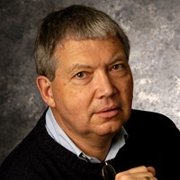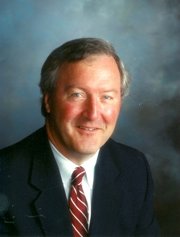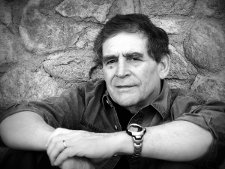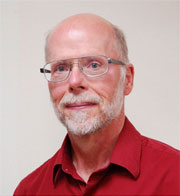 Presenter:
Presenter:
Dr. Edward Countryman
Date:
Tuesday, March 24, 2015 7pm
Location:
Wichita Falls Art Museum at Midwestern State University
Description:
African Americans and the Revolutionary Era
Dr. Countryman will talk about his book titled Enjoy the Same Liberty: Black Americans and the Revolutionary Era. According to John Saillant, from Western Michigan University, This book appears in an African American history series aimed at non-specialists and dedicated to bridging popular and academic history. The meat of the book examines black history from 1770 to 1831, emphasizing the black men and black women who resisted and criticized slavery. Documents, with the most recent, by President Barack Obama, dating from 2008, constitute examples. The thrust of Edward Countryman’s argument is that while new ways of thinking shared by blacks and whites during the years of the American Revolution undermined slavery, the U.S. Constitution and the astonishing expansion of cotton cultivation in the early republic fortified the slave system. The revolution, understood as stretching to 1831, was both antislavery and pro-slavery, leaving a paradoxical legacy that would be faced in the Civil War. Two views of the book are necessary: one is of its likely use in college history courses and the other is of its goal, set by author and publisher, to serve as a union of popular and academic history.
Biography:
A Distinguished Professor of History at Southern Methodist University, Dr. Edward F. Countryman is a specialist in Colonial America, Revolutionary Era, and Film History. After earning his Ph.D from Cornell University, he taught at the University of Canterbury, University of Warwick, University of Cambridge, and Yale University before coming to SMU in 1991. He received the Bancroft Prize for A People in Revolution: The American Revolution and Political Society in New York, 1760-1790 and the Jo Faye Godbey Prize for Americans: A Collision of Histories. His other major works include The American Revolution and Enjoy the Same Liberty: Black Americans and the Revolutionary Era. In addition to co-authoring The Empire State and Shane, he edited Historians at Work and co-edited Contested Spaces of Early America. With over 100 articles and essays to his name, Countryman has attracted the attention of print/broadcast journalism and his pieces have appeared in The New York Times and The Washington Post. A current research project of his will analyze the adaptation of Native American during the age of colonization.
 Presenter:
Presenter:
Dr. Carter L. Hudgins
Date:
Thursday, April 23, 2015 7:00 pm
Location:
Wichita Falls Art Museum at Midwestern State University
Description:
Sir Walter Raleigh, Thomas Harriot and the Search for the Lost Colony
This illustrated lecture will review the archaeological search for the Lost Colony on Roanoke Island in North Carolina. That search has followed routes, some overland and some over water, laid out when the ambitions of entrepreneurial Englishmen collided with Spanish strategies for North America in the 1580's along the south Atlantic coast. Excavations in England, Ireland, the Carolinas and Virginia and the rediscovery of ancient maps drawn in North Carolina by explorer John White in 1586 have opened a window on who took the risks and how they fared and how what happened on a small island along the North Carolina coast affected the course of Irish and American history. Thomas Harriot, astronomer, mathematician, and scientist, explored North Carolina in the 1580's for Sir Walter Raleigh and rented a house from him in Ireland in the 1590's. Archaeological investigations at both sites and at Jamestown in Virginia are leading to new understandings of the shape and character of the life on the England's New World frontier.
Biography:
Carter L. Hudgins is currently Director of the Graduate Program in Historic Preservation jointly sponsored by Clemson University and the College of Charleston. Prior to joining the Clemson faculty, Hudgins was Hofer Distinguished Professor of Early American Culture and Historic Preservation at the University of Mary Washington where he served multiple terms as chairperson of the Department of Historic Preservation and the Department of History and American Studies. A native of Franklin, Virginia, Hudgins completed a BA at the University of Richmond and an MA at Wake Forest University prior to receiving the PhD in early American history from the College of William and Mary. Trained as an historian and archaeologist, Hudgins has directed archaeological projects in Virginia, North Carolina, Brazil and Ireland. He is currently completing an archaeological investigation of an abandoned seventeenth-century town on the Caribbean island of Nevis and is involved with his current students in the architectural investigation and documentation of eleventh-century Molana Abbey in County Waterford, Ireland. Hudgins’ research in Ireland is an extension of the archaeological investigation conducted in conjunction with the First Colony Foundation of the site of the so-called Lost Colony on Roanoke Island in North Carolina. Molana Abbey was for a brief period in the 1590s the residence of astronomer and mathematician Thomas Harriot, the science officer of the Roanoke Colony. Six Virginia governors appointed him to boards that set policy for the Commonwealth in the areas of historic resources, libraries and archives. During his tenure as executive director of Historic Charleston Foundation from 1993 to 2000, Hudgins oversaw completion of several museum house projects including the restoration of the Nathaniel Russell House, structural repairs and restoration of Charleston’s early eighteenth-century Powder Magazine, and the acquisition and extensive conservation of the Aiken-Rhett House before its opening to public. He is the author of essays on historic preservation policy and the archaeology and architecture of early Virginia.
 Presenter:
Presenter:
Alan Weisman
Date:
Tuesday, April 28, 2015 7:00 pm
Location:
Akin Auditorium
Description:
Countdown: Our Last, Best Hope for a Future on Earth?
Winner of the 2014 Los Angeles Times Book Prize for science writing, the 2013 Paris Book Festival Prize for nonfiction, the 2014 Nautilus Gold Book Award, and the Population Institute’s 2014 Global Media Award for best book, and was a finalist for the Orion Prize and the Books for a Better Life Award.
With a million more of us every 4½ days on a planet that's not getting any bigger, prospects for a sustainable human future seem ever more in doubt. For this long awaited follow-up book, Alan Weisman traveled to more than 20 countries to ask what experts agreed were the probably the most important questions on Earth-and also the hardest: How many humans can the planet hold without capsizing? How robust must the Earth's ecosystem be to assure our continued existence? Can we know which other species are essential to our survival? And, how might we actually arrive at a stable, optimum population, and design an economy to allow genuine prosperity without endless growth?
The result is a landmark work of reporting: devastating, urgent, and, ultimately, deeply hopeful. By vividly detailing the burgeoning effects of our cumulative presence, Countdown by Alan Weisman reveals what may be the fastest, most acceptable, practical, and affordable way of returning our planet and our presence on it to balance.
Biography:
Alan is a co-founder of Homelands Productions. His radio pieces have been heard on NPR, Public Radio International, and American Public Media. His writing has appeared in Harper’s, The New York Times Magazine, Atlantic Monthly, Vanity Fair, Los Angeles Times Magazine, Orion, Audubon, Mother Jones, Discover, Condé Nast Traveler,Resurgence, and in several anthologies (including The Best American Science Writing 2006, The Best Buddhist Writing 2009, A Passion for This Earth, and Moral Ground).
He is also the author of An Echo In My Blood (Harcourt Brace, 1999); Gaviotas: A Village to Reinvent the World (Chelsea Green Publishing, 1998); La Frontera: The United States Border With Mexico (Harcourt Brace Jovanovich, 1986); and We, Immortals (Pocket Books, 1979).
Alan has been a Fulbright Senior Scholar in Colombia, writer-in-residence at the Altos de Chavón Escuela de Arte y Diseño in the Dominican Republic, the John Farrar Fellow in Nonfiction at the Bread Loaf Writers’ Conference, a contributing editor to the Los Angeles Times Magazine, and a professor of writing, journalism, and Latin American studies at Prescott College and the University of Arizona.
Among his radio awards shared with his Homelands colleagues are a Robert F. Kennedy Citation, the Harry Chapin/World Hunger Year award, and Brazil’s Prèmio Nacional de Jornalismo Radiofônico. He has also received a Four Corners Award for Best Nonfiction Book (for La Frontera); a Los Angeles Press Club Award for Best Feature Story; and a Best of the West Award in Journalism. His book, Gaviotas: A Village to Reinvent the World, won the 1998 Social Inventions Award from the London-based Global Ideas Bank.
Alan and his wife, sculptor Beckie Kravetz, live in western Massachusetts.
 Presenter:
Presenter:
Dr. W. Scott Meddaugh, Robert L. Bolin Distinguished Professor of Petroleum Geology, Midwestern State University
Date:
Tuesday, October 28, 2014 7:00 pm
Location:
Wichita Falls Art Museum at Midwestern State University
Description:
Fracking - Just the Facts, Please
Fracking, better referred to as hydraulic fracturing, has been used in the petroleum industry for many decades to enhance production from wells in conventional oil and natural gas reservoirs. With the discovery two decades or so ago that large scale hydraulic fracturing in combination with long reach horizontal drilling could be used to economically develop the huge unconventional shale gas or shale oil reservoirs in the United States and many other countries has the term fracking entered the common language. There is no question that fracking the unconventional oil and gas reservoirs in Texas, Oklahoma, Arkansas, Pennsylvania, Ohio and other states has its proponents and its detractors. Fracking has become so controversial that separating fact from fiction, known from unknown, and reality from speculation has become difficult for the non-specialist.
This talk will focus on what is known and unknown about fracking and its impact at several scales – from the individual land owner to the United States and to the global community. Specific questions to be addressed include:
- What is fracking?
- Has fracking contaminated groundwater or surface water supplies?
- Does fracking produce earthquakes?
- What are the longer term societal and environmental impacts of fracking at the local, national, and international scale?
- Is additional oversight of the fracking industry needed? And if so, what kind of oversight?
Biography:
Dr. W. Scott Meddaugh joined the Midwestern State University faculty in August 2013 as the Robert L. Bolin Distinguished Professor of Petroleum Geology. He has over 32 years of major oil company experience with Chevron and Gulf. His focus areas included reservoir characterization and modeling (static and dynamic), subsurface uncertainty assessment, geostatistics, and high end technical software development and deployment. His career with Chevron includes several years of supervisory and technical project management experience, including international major capital projects. He has worked on major reservoir projects worldwide including projects in the Permian Basin, California, Louisiana, Texas, and Wyoming as well as Saudi Arabia, Kuwait, Venezuela, Kazakhstan, Argentina, and West Africa.
He received a PhD in geology from Harvard University in 1983. He is a member of the AAPG, SPE, EAGE, and GSA. He also serves as an Associate Editor of the SPE Reservoir Evaluation & Evaluation Journal and is a technical editor for several other industry journals. In 2014 he received a Distinguished Technical Editor award for his work on the SPE Economics & Management Journal. He served on the program committees for the 2011 SPE Forum on Uncertainty Management and Risk Mitigation over Asset Lifecycles, the 2012 EAGE Innovation in Reservoir Modeling Conference: Integrating Data for Optimum Reservoir Management, and the 2014 CSPG Gussow Conference on Geomodeling. He has authored or co-authored over 30 peer reviewed and SPE technical papers on industry topics ranging from reservoir characterization and modeling to oil shale characterization; from soft rock to hard rock geology and isotope geochemistry.